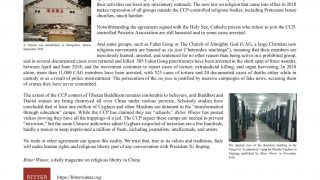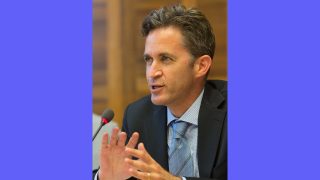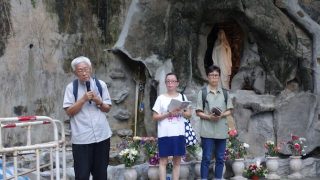“Noise, chatter, shrillness, lack of civility, and harsh language,” surround the public debate over refugees, who face a “seemingly endless volley of assaults,” said the UN refugee agency’s (UNHCR) Assistant High Commissioner for Protection on Thursday.
Volker Türk, made the comments in a key address on Thursday at the UNHCR’s annual Executive Committee Session held in Geneva, where he called for a “more empathic and humane dialogue” focusing on human dignity, to counter fraught debates about refugees.
The world is “facing a watershed moment where two sets of values have emerged,” he said. On the one hand, the Global Compact on Refugees has been developed, with 193 UN Member States joining in a constructive multilateral approach to the issue. Mr Türk said it showed what “can be achieved when we choose to rise above short-term interests to find a common way forward.”
We need to confront the xenophobia, racism, nativism, and bigotry, often driven by fear, anger, and anxieties within communities – Volker Türk, UNHCR protection chief
In contrast, he said, some states are succumbing to populist pressures and shirking their responsibilities, at a time when war and persecution have uprooted a record 68.5 million children, women and men worldwide.
“We need to confront the xenophobia, racism, nativism, and bigotry, often driven by fear, anger, and anxieties within communities. These are often used to deflect responsibility as a pretext for demolishing institutions of liberal democracy. This ultimately has a corrosive effect on everyone.”
Respect for dignity must be the antidote to dehumanization, said Mr Türk, underlining how hatred and violence had their origins in reducing individuals and groups to one or two characteristics, which “denigrates, and dehumanizes, challenging the inherent dignity of all.”
On the subject of statelessness and nationality, Mr Türk said that stateless people have told him how they feel invisible, as if they have “fallen through the cracks and do not matter,” and that “individuals are not objects to be governed by the powerful, but are subjects of law, endowed with dignity and entitled to a legal identity.”
Factors fueling conflict and violence must be addressed as a matter of priority, he said, “including the arms trade, extraction industries, the acquisition of land for mining and other purposes, inequality, authoritarianism and environmental change and degradation.”
Mr Türk expressed his surprise that some of the countries that have benefited most from international cooperation and trade are amongst the least willing to be part of international or regional frameworks on population movements, including refugees.
His comments echoed those made on Monday by Filippo Grandi, United Nations High Commissioner for Refugees, in his opening statement to the Executive Committee Session.
Mr. Grandi contrasted the decision of countries near regions of conflict or other crises, to those further afield, often rich countries, which are closing borders and “pushing people away,” adding “Today, when I engage with the leaders of countries neighbouring those in crisis, how am I to tell them to take more people, when some in richer countries are discussing how to close their doors?”
The UNHCR’s annual Executive Commission session ends on Friday.
Source: UN



